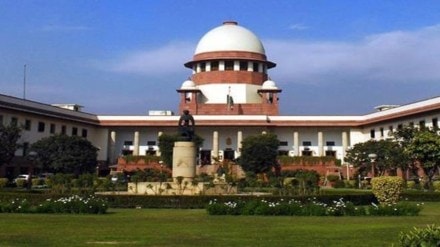The Supreme Court is set to hear a total of 73 petitions against the Waqf Amendment Act today. The bench, who will hear the please comprises of three judges including Chief Justice of India Sanjiv Khanna, Justice Sanjay Kumar, and Justice KV Viswanathan. The hearing will begin at 2:00 PM today (on Wednesday).
What is the Waqf law and why was it amended?
The government has said that the 1995 Act was not strong enough to properly manage Waqf properties, settle land ownership issues, or stop people from illegally occupying Waqf land.
The Centre has also pointed out that Waqf Boards don’t have members from diverse backgrounds, some caretakers (Mutawallis) have been found to be misusing their power, there is poor coordination with local land departments, and Waqf Boards have too much power to claim properties, which is what led to a plethora of legal cases.
The Waqf Amendment Bill was passed in Lok Sabha with 232 votes while in Rajya Sabha, with 128 votes.
The Centre has repeatedly said that the Waqf (Amendment) Act is not against the Muslim community, but is a means to fix the “past mistakes”. Union Minister Kiren Rijiju said on Tuesday that the aim of the law is to make sure that no one in India can take someone else’s land by force or without agreement. He also said that Waqf was changed because some parts of the old Waqf law had given too much power to the Waqf Boards.
Who is in favour and against the Waqf Law?
Several people and groups have filed petitions in top court questioning whether the changes made to Waqf are legal and constitutional.
Six states, including Maharashtra, Haryana, Madhya Pradesh, Chhattisgarh, Rajasthan, and Assam, have gone to the Supreme Court on their own. They have said that there are legal, administrative, and social reasons to retain the amended law. The Uttarakhand Waqf Board, on the other hand, has asked to join the case filed by AIMIM leader Asaduddin Owaisi, who is against the amendment. The Board supports the new changes and has asked the court to allow them to present their side.
DMK, Tamil Nadu’s ruling party, had filed a petition in the SC questioning whether the Waqf Act is legal. The party claims that the changes made to the law go against the basic rights of about 5 million Muslims in Tamil Nadu and around 200 million Muslims across India. Earlier, the Tamil Nadu Assembly had also passed a resolution asking the central government to cancel the bill.
